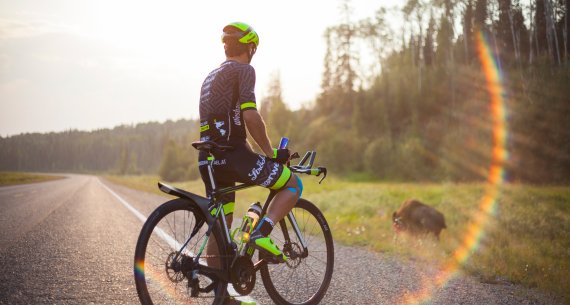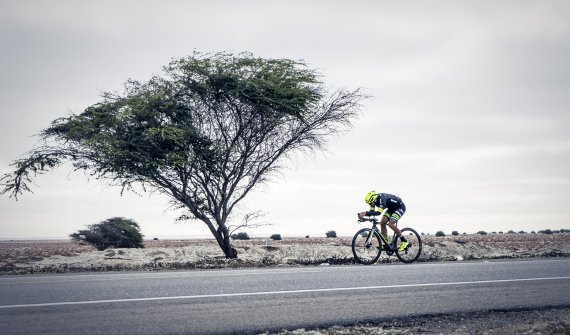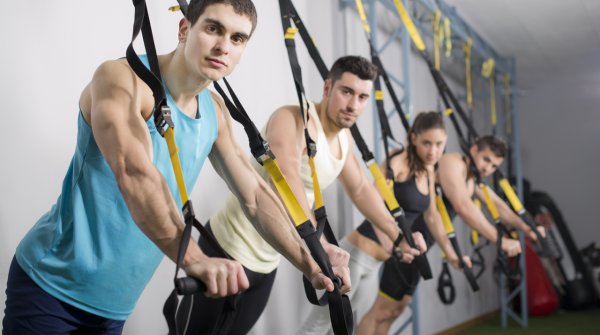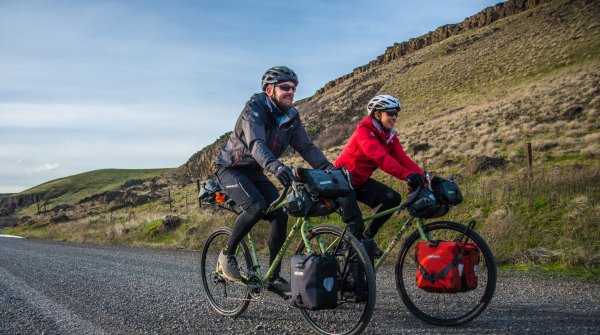
Michi Strasser knows how to destroy himself in a controlled way, how to test his limits - and how to get back on his feet afterwards.The 38-year-old Lower Austrian is a long-distance cyclist and extreme athlete.
His toughest tour to date took him in world record time from Prudhoe Bay in Alaska to Ushuaia at the tip of South America. "Ice2Ice" is the name of the adventure in which Strasser crossed two continents and 14 countries in exactly 84 days, 11 hours and 50 minutes. 23,000 kilometres, plus an incredible 185,000 metres in altitude.
What can the normal athlete learn from such a border crosser in terms of recovery? Quite a lot. Because it's during his long-distance adventures and the preparations for them that Michi shows how regeneration works. Spoiler: Above all, the attitude is crucial.
Anyone can acquire physical fitness to a certain extent. "But the decisive things happen in your head," says Michi Strasser. And that also applies to recovery.
"You always have to know why you want to keep going, why you are doing this". So if you pursue the wrong goals or the right goals at the wrong time, you will lack the strength to come back. And when it does go? "Then it's amazing how many times you can die and get back up".

Training is intentional stress. You have to relieve it. The higher the load, the longer the break. Michi knows what he's talking about: in 2016 he set off on his racing bike from Cairo to Cape Town, 34.5 days on the road. "Back then, I thought I could just keep going like this, directly plan the next competitions. I failed miserably with that."
Because instead he picked up pneumonia, was down physically and fell into a deep hole mentally as well. "To get out of that, it took months."
Michi Strasser is sure: "Faster and further" is no longer enough at some point. "With my more extreme stories, from the second week onwards it's about whether I can still hold my head up at all."
For the pro, that means targeted athletic training up to five times a week, at least three running sessions and intensive flexibility training.
Plan your regeneration days! Then you eat well, work little. And above all, get rid of the mobile phone! You have to set limits, especially when it comes to reachability. Anything else is not healthy. "The constant reachability, the constant sprinkling - that prevents your head from really relaxing," Michi Strasser is sure.
But not everyone has the privilege of earning a living as a professional athlete and being able to schedule such breaks. Which brings us to the fifth tip.

Most of us are not professional athletes. Instead we have to balance sport, job and family. Those are three fronts on which you can't always invest the same amount of energy. That's why many ambitious amateur athletes are in danger of failing in at least one of the three areas, Michi believes.
Recovery starts much earlier. "If you permanently overtax yourself, you can't recover either. You have to ask yourself the question: Does it really make me happy, for example, to become a daylight finisher at the Ironman, if I have to neglect my family or cut back at work to do so? Or am I happier, more relaxed, and healthier in the end, all things considered, if I finish well and still have a life away from amateur sports?"
- Cold baths after exercise - shower each leg for one minute ice cold. This helps against inflammation and irritation.
- Michi's secret in the evening: progressive muscle relaxation. This can lower blood pressure, pulse and bowel activity, for example, and breathing also becomes calmer.
- If you can fit it into your daily routine, Michi Strasser definitely recommends a power nap - take a nap for 20 to 30 minutes. "There you can suddenly process completely different training stimuli."
 Know-HowThe 11 Best TRX Exercises
Know-HowThe 11 Best TRX Exercises
- Awards
- Mountain sports
- Bike
- Fitness
- Health
- ISPO Munich
- Running
- Brands
- Sustainability
- Olympia
- OutDoor
- Promotion
- Sports Business
- Textrends
- Triathlon
- Water sports
- Winter sports
- eSports
- SportsTech
- OutDoor by ISPO
- Heroes
- Transformation
- Sport Fashion
- Urban Culture
- Challenges of a CEO
- Trade fairs
- Sports
- Find the Balance
- Product reviews
- Newsletter Exclusive Area
- Magazine




